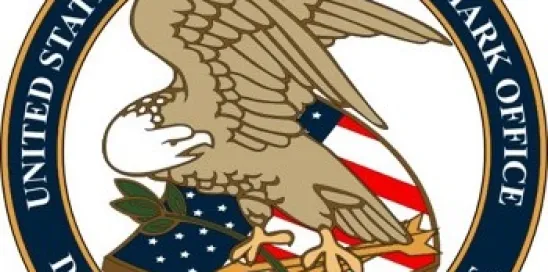If the U.S. Patent and Trademark Office (USPTO) is going to implement fee changes in January 2025, we should see a Federal Register Notice detailing the proposed fees soon. The USPTO started this round of fee-setting in April 2023, publishing its initial proposed fee schedule and supporting information for consideration by the Patent Public Advisory Committee (PPAC). The PPAC’s feedback on the proposed fee changes may provide insight as to which new fees are likely to be implemented and which may be shelved.
The USPTO Fee-Setting Process
The USPTO fee-setting process is a multi-step process that requires input from the PPAC, a public hearing, and a public notice and comment period. The fee changes that took effect in October 2020 began their journey in August 2018, with a Notice of Proposed Rulemaking (NPRM) issued in July 2019 and the final fees published in August 2020. If the USPTO is going to implement fee adjustments in January 2025, it is leaving much less time for consideration of public comments on any NPRM issued in the coming months.
PPAC Comments On Proposed Fee Adjustments
I summarized the most significant proposed fee adjustments in this article — the full proposed fee schedule and justifications are available on the USPTO’s Fee-Setting web page. Here, I review the PPAC’s comments on the proposed adjustments as stated in the PPAC Fee Setting Report — which increases did PPAC support and which did it disagree with?
(Any fees noted below are at the Large Entity rate)
Mixed Support for Across the Board Fee Increases
The PPAC supported the proposed 5% across-the-board fee increase justified as an inflation adjustment, but opposed the second 5% across-the-board fee increase “designed to front load fees in order to reduce the reliance on maintenance fee renewals.” The PPAC found that would place “an undue burden on individual inventors and small businesses.”
The PPAC also did not support the significantly increased fees for design patent applications and suggested the USPTO instead consider seeking legislative changes that would impose maintenance fees for design patents.
Opposed New Assignment Recordation Fees
The PPAC opposed the proposed new fees (US$40/US$60) for assignment recordation, which the USPTO had justified to discourage “frivolous” submissions. The PPAC noted that “ensuring transparency of ownership is key to patent data integrity,” and so does not recommend “a fee that would provide an impediment to keeping assignment data up to date.”
Support for Increased Excess Claim Fees
The PPAC supported the proposed increases in excess claim fees (doubling to US$200 for each claim over 20 and increasing 25% to US$600 for each independent claim over 3), but agreed with public comments that the increased fees should be “spent on examination and/or giving the Examiners additional time to evaluate such cases.”
It would be interesting if the USPTO adopted a fee structure that would provide at least a partial refund of excess claim fees if claims are canceled in response to a restriction requirement. That would permit applicants to benefit from the divisional application protections of 35 USC § 121 without having to pay inordinate excess claim fees for claims that are not examined on the merits.
Support for New Escalating IDS Fees
The PPAC supported the proposed new escalating Information Disclosure Statement (IDS) fees, which would be based on the cumulative number of references cited (>50 items: US$200; >100 items: US$300; >200 items: US$300), but suggested “the additional money should go towards allowing Examiner’s [sic] more time to consider the additional references.”
With regard to the IDS burden, the PPAC also stated:
[I]f Congress would reform inequitable conduct rules, this by itself may largely affect applicant behavior. With current inequitable conduct case law, there is undue pressure on practitioners to cite every possible reference or risk the practitioners right to practice or the enforceability of the case. The PPAC recommends a legislative proposal to change this pressure.
I find this comment interesting because it is the USPTO that has not revised the contours of “materiality” set forth in 37 CFR § 1.56 since the Federal Circuit adopted a “but for” standard for inequitable conduct in 2011. The USPTO’s own rule and guidance require disclosure of more information than current inequitable conduct case law.
Opposed New Escalating Terminal Disclaimer Fees
The PPAC opposed the proposed new escalating Terminal Disclaimer fees, which would increase from US$200 to as much as US$1,400 depending on when the Terminal Disclaimer is filed. The PPAC noted that the proposal would “place an unfair burden to filers with limited resources” who would face “pressure…to give up patent term in exchange for a less expensive more compact prosecution while those with more resources can wait to see if they need to file a terminal disclaimer.”
Conditional Support for New After-Final Consideration Program Fee
The PPAC opposed the proposed US$500 fee for the after-final consideration program unless applicants are guaranteed an examiner interview, or unless the fee is only collected if an interview is granted.
If the USPTO adopts this approach, it should implement safeguards requiring a meaningful interview. In my experience, some examiners conduct two-minute AFCP “interviews” that only advise the applicant that the proposed amendments are being denied entry under the program because they require a new search or more than the allotted time to consider.
Support for Revised RCE Fee Structure
The PPAC supported the revised fee structure for Requests for Continued Examination (RCEs), with a new higher tier for third and subsequent RCEs (1st RCE: US$1,500; 2nd RCE: US$2,500; 3rd RCE: US$3,600).
Before the USPTO adopts this new structure, it should consider the impact of its IDS rules on RCE filings. For example, the rule that permits filing of an IDS after a final Office Action or Notice of Allowance only applies to IDSs filed to submit items cited by a “foreign patent office in a counterpart foreign application” or items not previously known to any individual encompassed by the duty of disclosure. It does not apply to IDSs filed to submit items recently cited in a co-pending U.S. application, even if the co-pending U.S. application is a parent or child of the application at issue. To obtain consideration of such an IDS after a final Office Action or Notice of Allowance requires an RCE.
Mixed Support for New Continuing Application Fees
The PPAC opposed the proposed new fee for filing a continuing application between three and seven years after the initial application but supported the proposed new US$3,000 fee for filing a continuing application after seven years or more.
If the USPTO adopts this surcharge, divisional applications should be excluded. Imposing an additional fee for filing a divisional application could be inconsistent with 35 USC § 121, which offers protection to divisional applications filed any time before issuance of the application in which a Restriction Requirement was made.
Conditional Support for Increased Patent Term Adjustment Reconsideration Fee
The PPAC supported the proposed increase in the fee for requesting reconsideration of a patent term adjustment (PTA) award from US$210 to US$300, but only if the USPTO did not make an error in its PTA calculation. I agree with the PPAC’s comment that “[i]f the USPTO made the adjustment mistake, then the applicant shouldn’t have to pay.”
Qualified Support for Increased Patent Term Extension Application Fee
The PPAC supported increasing the fee for an application for FDA review-based patent term extension (PTE), but suggested the USPTO reconsider the magnitude of the increase (from US$1,180 to US$6,700) given its potential impact on “start-up companies [who] may be resource constrained.”
Mixed Support for PTAB Trial Fees
The PPAC supported the increased petition fees for PTAB trials, but opposed proposed fixed fees for exceeding prescribed page limits because they would favor “well-resourced petitioners.” The PPAC also opposed the proposed new US$440 fee for requesting Director review of a PTAB decision, noting that “[d]irector review should be encouraged to ensure that all PTAB decisions are consistent,” and that imposing a fee “may adversely affect individual inventors and small company applicants.”
Will These Fees Change Applicant Behavior?
Many of the new fees and significantly higher fees are intended to change applicant behavior, but will they do so in a manner that promotes the grant of reliable patent rights and supports innovation and investment in new technologies?




 />i
/>i

